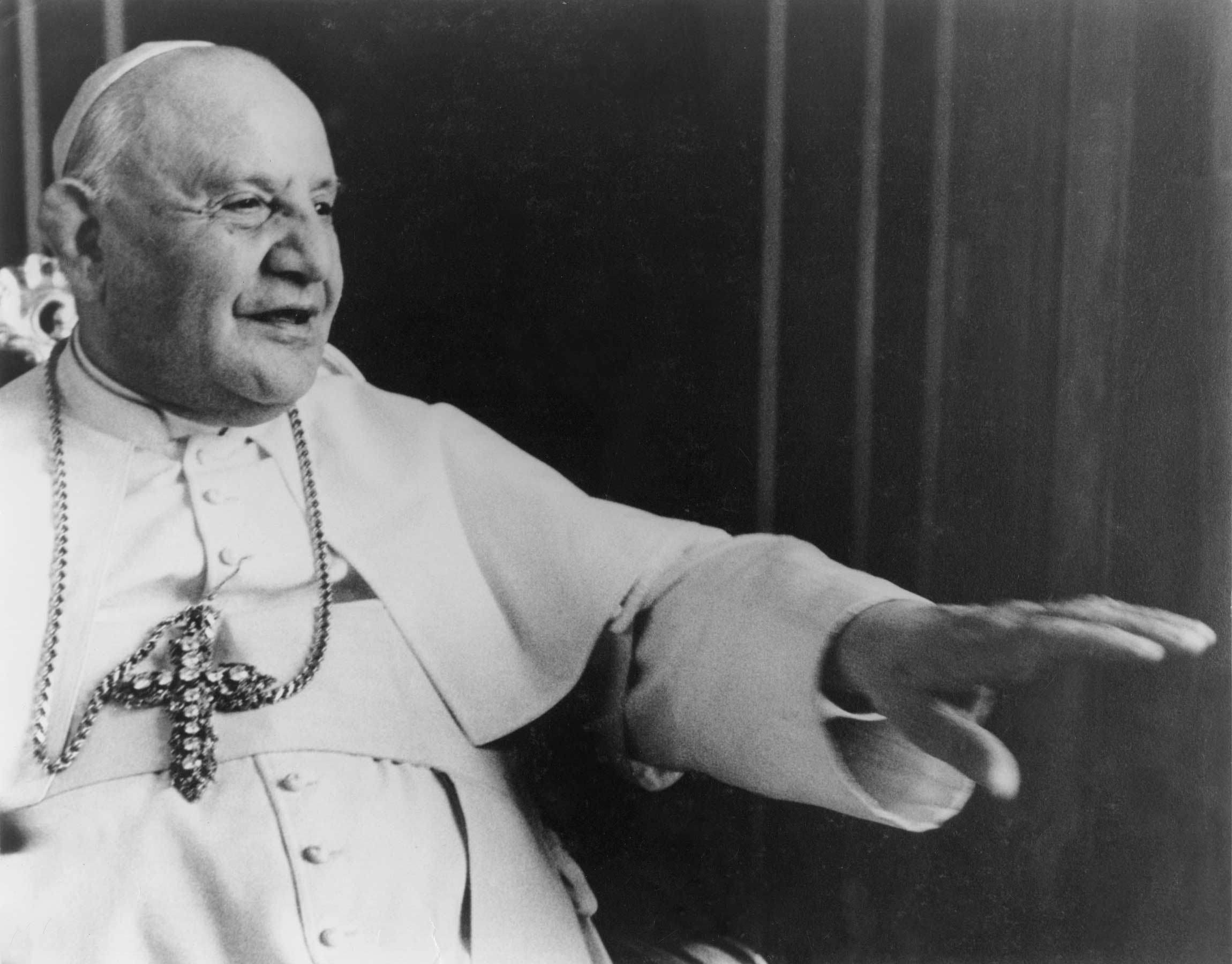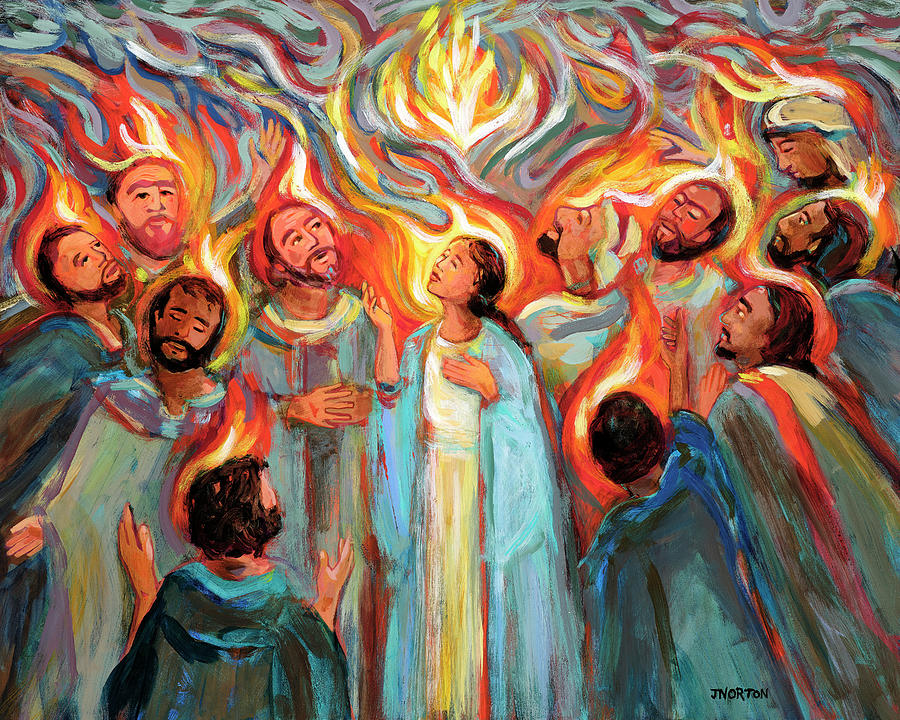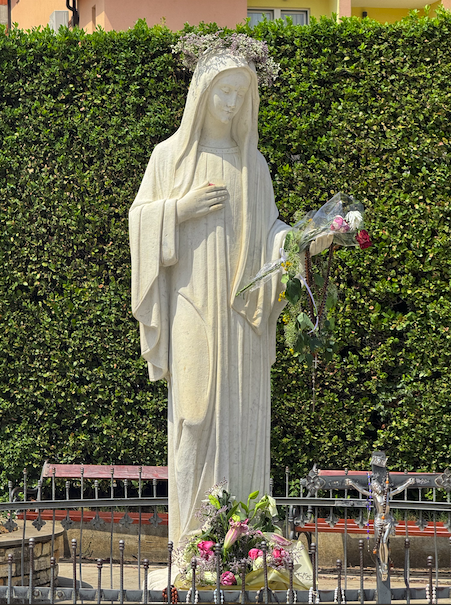These reflections are a result of more than 40 years of ministry as a Roman Catholic priest. Most of these years I spent in the Diocese of Charlotte which covers Western North Carolina. Now I am retired, and live in Medellín, Colombia where I continue to serve as a priest in the Archdiocese of Medellín.

While Jesus was speaking, a woman from the crowd called out and said to him, "Blessed is the womb that carried you and the breasts at which you nursed." He replied, "Rather, blessed are those who hear the word of God and observe it." (Lk 11:27-28)
https://bible.usccb.org/bible/readings/101125.cfm
There are many movements trying to encourage people to read their Bibles, but mostly to no avail. Pope John XXIII found the solution. He convoked the Second Vatican Council (1962-1965). One of the great reforms of the Council was the lectionary. On any given Sunday, more scripture is read in the liturgy than the Baptist church of my childhood read in a month. The trick of course is not just hearing the word of God but putting it into practice! https://youtu.be/AbpRL1kULQQ?si=-RfsluVH-M3dUlPK

Gird yourselves and weep, O priests! wail, O ministers of the altar! Come, spend the night in sackcloth, O ministers of my God! Proclaim a fast, call an assembly. (Joel 1:13-15; 2:1-2)
https://bible.usccb.org/bible/readings/101025.cfm
This passage sounds a lot like Lent, and for good reason: the Prophet Joel is read on Ash Wednesday to call us to prepare for the great day of redemption, the Passion, Death and Resurrection of the Lord. We know that the sufferings we endure lead to gospel joy. https://youtu.be/RaH2OWndHjk?si=vcfgY7oqG3xN_k2J Here is a link to the Vatican News article about Pope Leo’s new apostolic exhortation, Dilexi Te, On the Love of the Poor: https://www.vaticannews.va/en/pope/news/2025-10/pope-leo-faith-cannot-be-separated-from-love-for-the-poor.html.

And I tell you, ask and you will receive; seek and you will find; knock and the door will be opened to you. For everyone who asks, receives; and the one who seeks, finds; and to the one who knocks, the door will be opened. If you then, who are wicked, know how to give good gifts to your children, how much more will the Father in heaven give the Holy Spirit to those who ask him. (Lk 11:5-13)
https://bible.usccb.org/bible/readings/100925.cfm
This passage does not offer us a celestial grab bag: we get anything we ask for. No, what God offers is the Holy Spirit. https://youtu.be/Hi9OdZWwf9A?si=qNg0zF9ggxYa7T-o

Lord, teach us to pray just as John taught his disciples. (Lk 11:1-4)
https://bible.usccb.org/bible/readings/100825.cfm
It should be no surprise that John the Baptist was also a person of prayer and had disciples. The prayer that Jesus gives us is short, simple and direct: Kingdom come, daily bread, forgiveness, and deliverance. With this prayer we can ask for what we need and then rest in God's arms, trusting in divine providence. Psalm 131 reminds us: “Like a child rests in its mother’s arms, so will I rest in you.” https://youtu.be/ZUAZIiJWqY0?si=5ZzBR_wKd14iUybC

Jesus entered a village where a woman whose name was Martha welcomed him. She had a sister named Mary who sat beside the Lord at his feet listening to him speak. (Lk 10:38-42)
https://bible.usccb.org/bible/readings/100725.cfm
The Martha and Mary story is interesting, but this is not just any ole village. Martha and Mary live in Bethany. And why has their brother, Lazarus, been erased completely? Perhaps the others were jealous of the very close friendship that they had with the Lord. We know that the Lord wept for his friend Lazarus who had died and then raised him from the dead. In his love for us, his beloved disciples, the Lord will call us by name to be by his side for ever. Pray for us, O holy Mother of God, that we may be made worthy of the promises of Christ. https://youtu.be/SRFFdyygSAE?si=OGm5FQP4jFoZBShp



